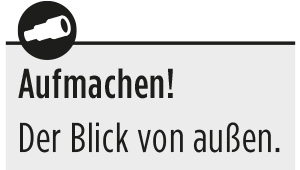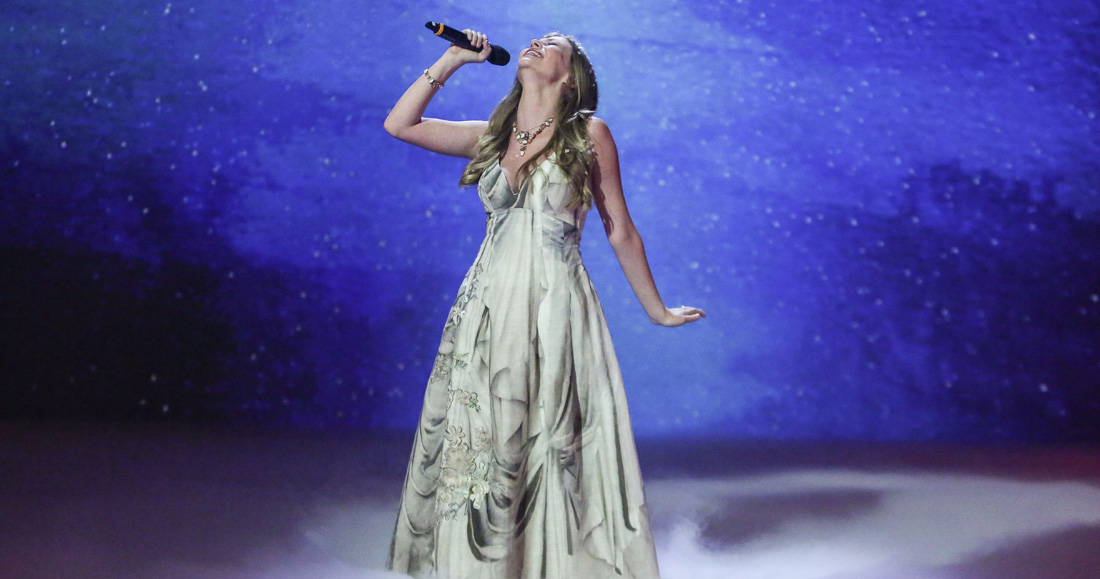[Eine Seite zurück]
Eurovision: Turning On Linguistic Diversity
Public Value Bericht 2015/16: Dr. Dean Vuletic – University of Vienna

The selection of ZOE and her song »Loin d'ici« (Far from Here) to represent Austria in this year's Eurovision Song Contest is more of a countercurrent promotion of diversity than the appearance of Conchita Wurst was. This is because, despite the fact that Austria and most other countries participating in the contest have in recent years opted to sing in English, Zoë will be singing in French. Indeed, although the Eurovision Song Contest has always been a stage upon which issues of artistic, national and sexual diversity have been performed, a change to the rules of the contest that has been in force since 1999 has meant that entrants are not obliged to perform their songs in an official language of the country that they represent but can choose any language that they wish. This has resulted in most entries being sung in English - and sometimes in an English whose quality is questionable. The change to the language rule was adopted after Ireland and the United Kingdom had in the 1990s won the contest five times with English-language songs. Ironically, since then neither of these two countries have won the Eurovision Song Contest, although all of the winners since 1999 have been in English, with the exception of Serbia's victory in 2007.
With all the discussions on cultural and social diversity that the Eurovision Song Contest has provoked throughout its history, it appears that linguistic diversity is now not something that the contest succeeds in embracing. With the exception of some holdouts that still mostly enter songs in their official languages, such as France, Italy, Spain and some East European countries, the decrease in linguistic diversity in the contest has resulted in the loss of one of the rare opportunities for Europeans to be exposed to the sounds of a multitude of languages.
Since the mid-1950s, when officials at the European Broadcasting Union initiated the international exchange of television programmes through the Eurovision Network, linguistic diversity has always been a challenge in their cooperation. One of the effects of linguistic obstacles has been that the majority of the network's programmes have been comprised of sporting events, with national commentators providing voice-overs in their own languages. Europeans have watched the same images, but they have not always heard the same sounds. The Eurovision Song Contest, the Eurovision Network's most famous product, has, however, been an opportunity for languages from all over Europe to be heard by one of the largest television audiences in the world for a single programme. Lubricated with the sounds of international popular music trends, Europeans were from the 1950s to the 1990s exposed to the juxtaposed sounds of Finnish, Greek, Hebrew, Italian and, of course, English. The biggest number of winners from a single language in the contest in the Cold War period were in French, but there were also victories in Croatian, Danish, Dutch, Norwegian and Swedish. The Eurovision Song Contest provided Europeans with a chance to learn something about these languages, to at least familiarise themselves with what they sounded like, if not to learn some words. And it achieved this pedagogical function in an entertaining and light way: listening to a three-minute-long pop song in an unknown language is easier to do than watching an hour-long documentary in the same.
There are examples of television stations that have developed their programming on the principle of linguistic diversity, such as the Franco-German offerings of Arte and the palette of multilingual commentaries provided by Euronews. The Special Broadcasting Service (SBS) was established in Australia in the early 1980s to provide multilingual programming - usually subtitled - aimed at migrant communities and reflecting the development of an official policy of multiculturalism. Indeed, it was SBS that in 1983 started broadcasting the Eurovision Song Contest in Australia, and which in 2015 contributed Australia's first ever entry in the contest. Yet, of Australia's five major free-to-air national television networks, SBS has always been the least watched and the most financially vulnerable among them, being criticized for being too »ethnic« or for lacking appeal for a broader segment of viewers who are reluctant to read subtitles. Nonetheless, SBS continues as a rare example in the world of a television station on which one can view the products of so many different linguistic cultures.
And the very uniqueness of SBS is a reason why the issue of linguistic diversity at the Eurovision Song Contest is something that needs to be opened up once again - because there are still relatively few examples of television programming in which viewers are exposed to so many different languages. The Eurovision Song Contest has allowed viewers to hear that there is also an Estonian popular music industry whose products might otherwise never be broadcast on their national radio stations, or to be amazed by the voice of a Rona Nishliu who managed to come fifth in the contest in 2012 with a song in Albanian. How many singers like Céline Dion and Julio Iglesias, whose international careers the Eurovision Song Contest helped to launch, but who sang at the contest in French and Spanish respectively, are we missing out on by the perceived need that the contest's entrants feel to perform in English? Languages often express ideas and sentiments differently, they make us feel and think about things differently … English, for example, is not considered »the language of love« in the way that the language that Zoë will sing in this year is. So, when it comes to national public service television stations paying more than lip service to diversity issues at the Eurovision Song Contest, linguistic diversity is a factor that needs to be more highly prized.
Der Autor Dean Vuletic ist australischer Historiker und leitete von 2013 bis 2015 am Institut für Osteuropäische Geschichte der Universität Wien das Forschungsprogramm »Eurovision: A History of Europe through Popular Music«.


